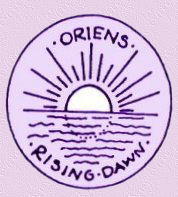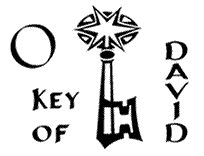Sunday,
December 05, 2010 Glasgow
Friends this evening are going to the film in Glasgow.
The Times Fri December 3 2010
'This film is more
about men than gods'
His story of a monastery in
crisis has had audiences across France in tears. Kate Muir meets Xavier
Beauvois
Outside a boutique hotel near the
Jardin du Luxembourg, director Xavier Beauvois is sneaking a quick fag and
shivering in a grey hoodie. Beauvois
has
come down to Paris from Normandy,
where he lives "directly opposite Brighton". A reluctant celebrity,
he has suddenly found himself in the international spotlight thanks to his
movie Of Gods and Men, France's bestselling entry for the Oscars (see review,
page 13).
Beauvois' film is intensely passionate,
and the fact that the passion is religious makes it no less moving. The
winner of the Cannes Grand Prix, it opens in Britain today, but Gallic audiences
have been weeping prolifically at the picture of French monks facing attack
by Muslim fundamentalists in the Atlas Mountains of Algeria. Based on real events
in 1996, the film has become an unlikely sensation in France, with five weeks
at No 1 and nearly four million tickets sold.
The director is not religious at all, and seems bemused by the reaction in America there is even talk of church groups arranging screenings as they did for The Passion of the Christ and The Blind Side. But Of Gods
and Men is in a higher league than those efforts, with a fine cast of actors, including Lambert Wilson as the patrician abbot who reads the Koran. "I never wanted
it to be a Catholic film. It comes from left and right; it is about men more than gods. But it is true that something in this story resonates with people," says Beauvois. "The culture of crashing banks, conspicuous consumption,
and others working hard for less and less, all those problems mean people want breathing space for a few hours, an escape. They have a need for growth, spirituality, silence. A moment without Sarkozy.”
Etienne Comar, his co-writer, agrees. "Nowadays it's rare to die for what you
believe in, to have conviction and passion. And there's also our French obsession with the fallout from colonialism."
|
THE TIMES I Friday December 3 2010
arts film reviews
Their faith
under fire
A portrait
of French monks menaced by Islamic terrorists moves Wendy Ide
Of Gods
and Men 15 (l20mins)
*****
A prizewinner in Cannes in May and one of the most quietly powerful films to have screened on the Croisette in several years, Of Gods and Men approaches the hot-button topic of religious extremism with a meditative intelligence. Inspired by an actual event, the abduction and murder of a group of French monks in Algeria in the mid 1990s, Xavier Beauvois' (see interview, page 14) film explores the mundane day-to-day routines and the crises of faith among the men of God in a small monastery that co-exists with a rural peasant community in North Africa.
The simplicity of the film's style reflects the austerity of the men's existence: their routines of devotion and drudgery are reflected in the rhythms and repetition within the picture. In the service of the Lord and the locals, the monks run a clinic and toil on their little plot of land, producing honey for sale. They are embraced by the immediate community. "We are the birds and you are the branch. If you leave, we'll lose our footing," explains one of the villagers. But the larger picture is clouded by unrest. Muslim extremists
and corrupt government forces do battle; when a group of Croatian labourers are murdered, the monks realise that they may be the next foreigners to get caught in the crossfire.
Impressive performances are complimented by unobtrusive camerawork that captures the flickers of disquiet on the faces of the brothers. Much is said without resorting to pages of expository dialogue. When one monk howls in anguish, pleading with his Lord not to forsake him, the others eavesdrop uneasily. For most of the film, the soundtrack consists of the devotional chants of both the monks and of the Muslim villagers. But in one potent scene, the men listen to Swan Lake and drink red wine with their simple evening meal Their joy at the transcendence of the music gives way to a shared grief at their inevitable fate, all without a word spoken.
The film refrains from offering judgments: on whether the monks are right to stay while the tensions mount, or whether the instability in the country is a result of the French colonization in the first place. Instead it's a human portrait of faith and spirituality
put to the ultimate test.
|
Part of the film concerns the friendship between Muslim locals and the
Cistercian monks, who lead a contemplative life in the sun-dappled olive
groves, gathering honey - until fundamentalists attack. Fourteen years ago
newspapers reported that the monks had been kidnapped by Islamic
fundamentalists during the Algerian civil war. The monks were eventually
beheaded, but Beauvois was not interested in gore. "We made some severed heads and threw them away when we started filming,
because the story took on a life of its own the minute it existed. It's like
raising a child - you can't guess its character." What the director wanted
to explain was the religious calling, and the film becomes gripping as each monk
decides whether to stay and almost inevitably become a martyr, or to go.
Beauvois went for a week's retreat to a monastery in the Savoie to prepare.
"I realised the film must be as austere as its surroundings.
No tracking shots,just simple static shots indoors. And I added more of the rhythms
of the religious day, the chanting and singing, once I'd been there." Beauvois
made his actor-monks practise their chants for two months, "by which time
they'd formed a group, a sense of brotherhood". The film's style is classical,
and Beauvois takes his time without ever losing the tension. An actor himself, he
gives his cast space to perform in a landscape of incredible beauty. Beauvois is
43, and was called an enfant terrible when he won the Cannes Jury prize 15
years ago with Don't Forget You're Going to Die. (Contd. Kate Muir)












